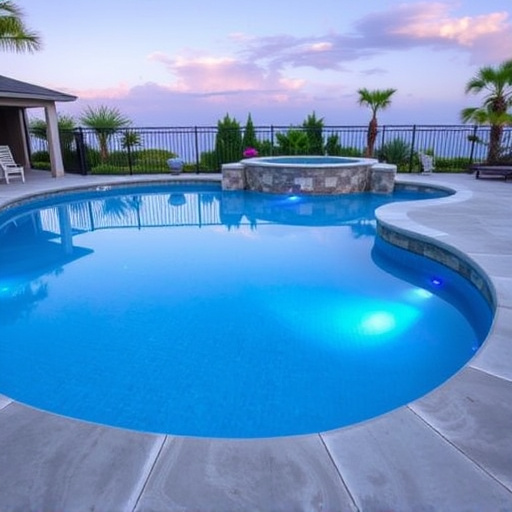Inground pools pose unique safety risks due to hidden hazards. Swimming pool alarms for inground pools are crucial sentinels that detect and alert users or bystanders to sudden changes, preventing tragedies and enhancing reaction times. These advanced security systems, equipped with sophisticated sensors, pinpoint movement beneath the water's surface, offering robust protection against accidental drowning. Regular maintenance, including weekly water chemistry checks and cleaning, combined with swimming pool alarms and safety features like self-closing gates and fenced areas, ensures a secure and enjoyable inground pool experience.
Inground pools offer a refreshing escape from the heat, but they also pose unique safety risks. Understanding these dangers is the first step towards a fun and secure swimming experience. This article delves into crucial aspects of inground pool safety, focusing on the importance of swimming pool alarms as a critical defense against accidental drowning. We explore practical measures and regular maintenance routines to ensure your inground pool is a safe haven for all.
Understanding Inground Pool Safety Risks
Inground pools present unique safety risks that demand meticulous consideration and proactive measures to mitigate. Unlike above-ground models, their immersive nature means potential hazards are often hidden from plain sight. Understanding these risks is pivotal in ensuring a safe aquatic environment for all users. A primary concern is accidental immersion, which can occur even with strong swimming abilities due to unexpected circumstances like dizziness or loss of consciousness.
Another critical aspect is the absence of immediate visibility, making it essential to employ safety devices such as swimming pool alarms for inground pools. These systems act as vigilant sentinels, alerting users and nearby individuals of any sudden changes in water activity, be it a child’s accidental entry or an unexpected fall. By integrating these alarm systems, homeowners can significantly enhance their ability to react swiftly and prevent potential tragedies.
The Role of Swimming Pool Alarms
Swimming pool alarms play a pivotal role in enhancing the safety of inground pools, addressing a critical concern given the potential risks associated with such aquatic features. These advanced security systems are designed to detect and alert users and caregivers when someone enters or remains unattended near the pool for an extended period. By leveraging technology, swimming pool alarms offer a robust defense against accidental drowning and other water-related incidents.
For inground pools, specifically, these alarms are equipped with sophisticated sensors that can pinpoint movement beneath the water’s surface, ensuring no one goes unnoticed. This proactive approach to safety is particularly beneficial for families with young children or those who host gatherings around their pools. By integrating swimming pool alarms into their safety measures, homeowners can rest assured, knowing their loved ones and guests are protected, even while enjoying recreational activities in the water.
Implementing Effective Safety Measures
Implementing effective safety measures is paramount when it comes to inground pool security. One crucial tool in ensuring a secure swimming environment is the use of swimming pool alarms for inground pools. These devices act as vigilant sentinels, immediately alerting homeowners or lifeguards of any unauthorized entry into the pool area. Modern alarms are equipped with sensitive sensors that detect movement around the pool, triggering an alarm if someone enters without proper authorization.
Additionally, integrating safety measures like self-closing and locking gates, installing fencing with sharp edges or thorns, and ensuring clear visibility around the pool can significantly reduce risk. Regular maintenance of these systems and training for all household members on what to do in case of an alarm activation are essential components of a comprehensive inground pool safety strategy.
Regular Maintenance for Inground Pools
Regular maintenance is key to ensuring your inground pool remains a safe and enjoyable space for swimmers. This includes weekly checks to monitor water chemistry, such as pH levels, chlorine, and alkalinity. Using reliable testing kits and following manufacturer guidelines will help maintain optimal conditions. Additionally, regularly clean the pool’s surfaces and skimmer baskets to prevent debris buildup.
For enhanced safety, consider installing swimming pool alarms for inground pools. These devices can alert you to potential hazards, such as unexpected changes in water levels or unauthorized access. Regular maintenance combined with advanced safety features like these will go a long way in keeping your inground pool secure and enjoyable all year round.
